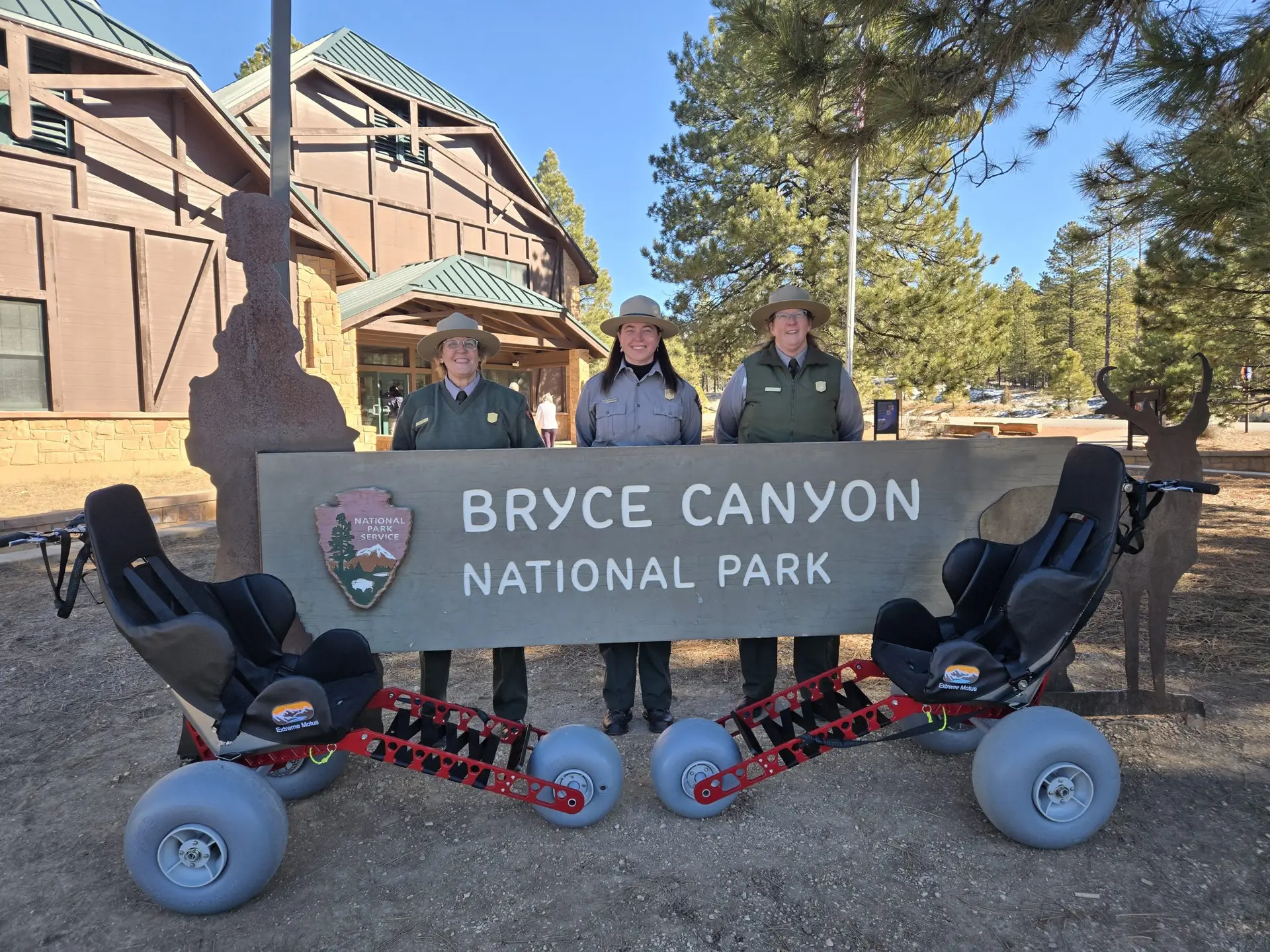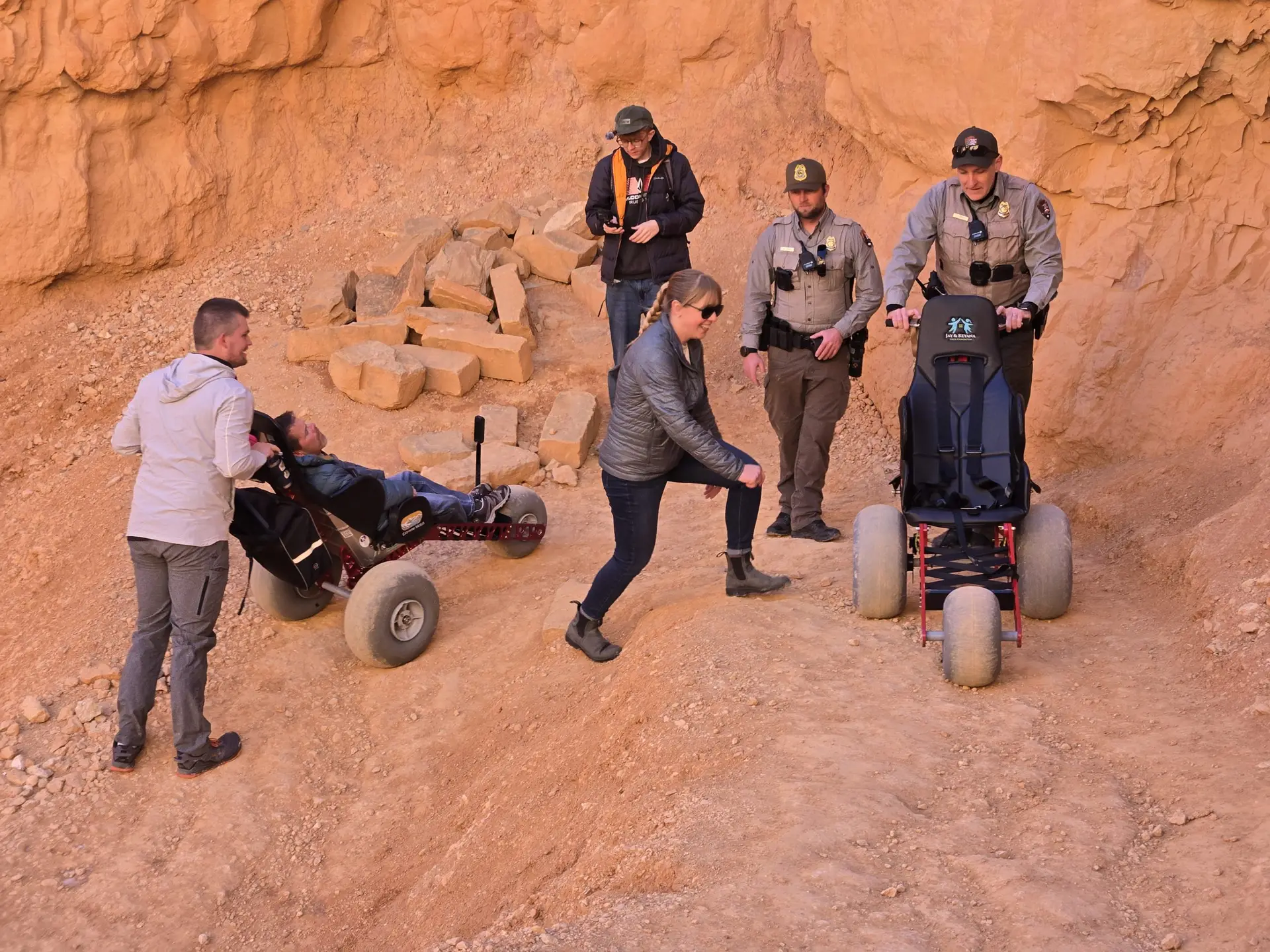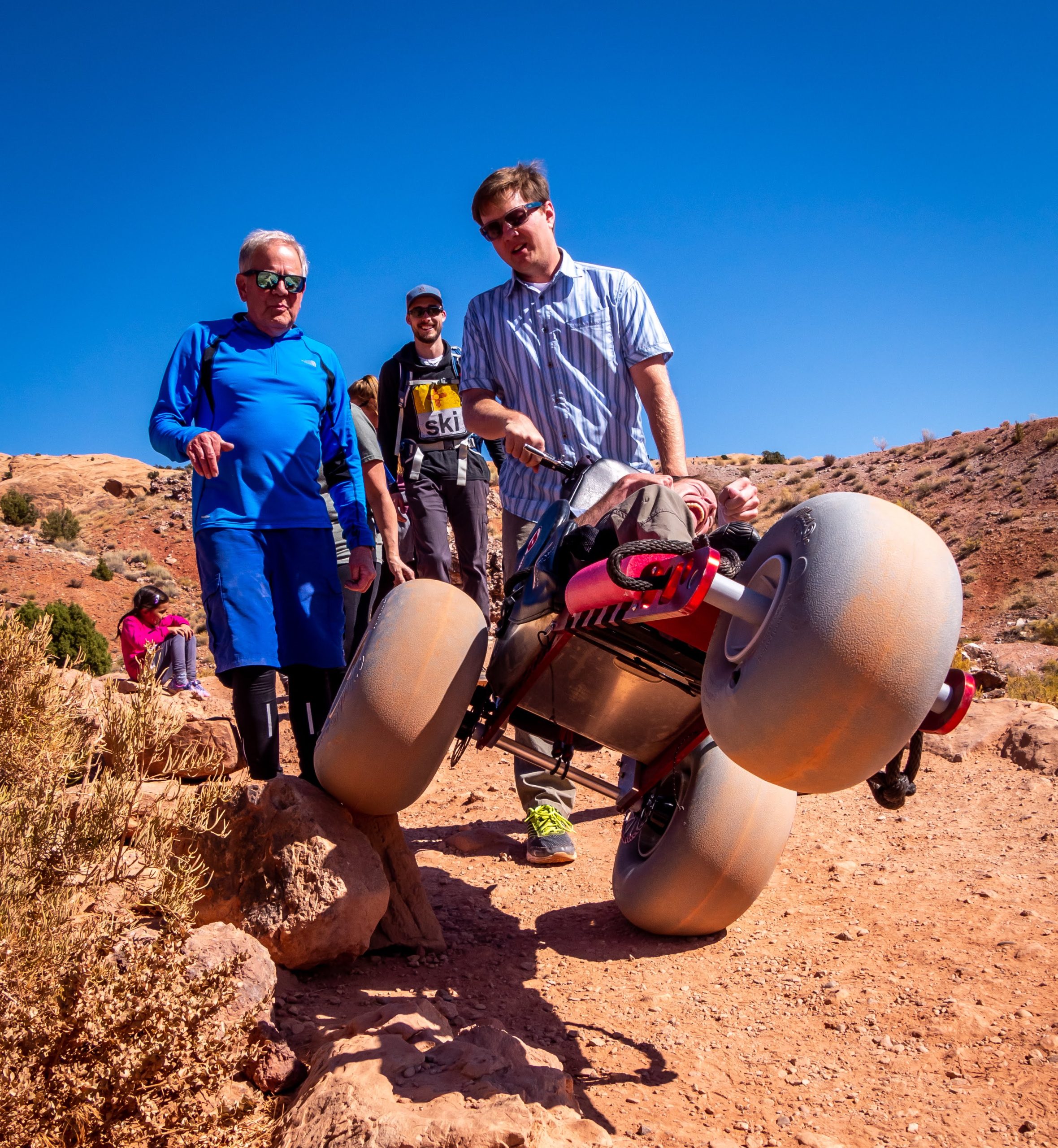7 Essential Facts About Parkinson’s Disease and How to Stay Active Outdoors
Parkinson’s Disease (PD) is a progressive neurological disorder that affects movement, coordination, and balance. While it presents unique challenges, spending time outdoors and using tools like an all-terrain wheelchair can significantly enhance quality of life. Here’s what you need to know about Parkinson’s Disease and the benefits of connecting with nature.
1. What is Parkinson’s Disease and What Causes It?
Parkinson’s Disease is a degenerative disorder of the central nervous system, primarily impacting motor function. It occurs when nerve cells in the brain’s substantia nigra fail to produce enough dopamine, a chemical responsible for transmitting messages related to movement.
Causes of Parkinson’s Disease:
- Genetics: Certain genetic mutations increase the risk.
- Environmental Triggers: Exposure to toxins like pesticides or heavy metals may contribute.
- Age: The risk increases with age, especially after 60.
- Gender: Men are slightly more likely to develop PD than women.
2. How Many People Are Affected by Parkinson’s Disease?
Parkinson’s Disease affects approximately 10 million people worldwide. In the United States alone, about 60,000 new cases are diagnosed each year. It is the second most common neurodegenerative disorder after Alzheimer’s disease.
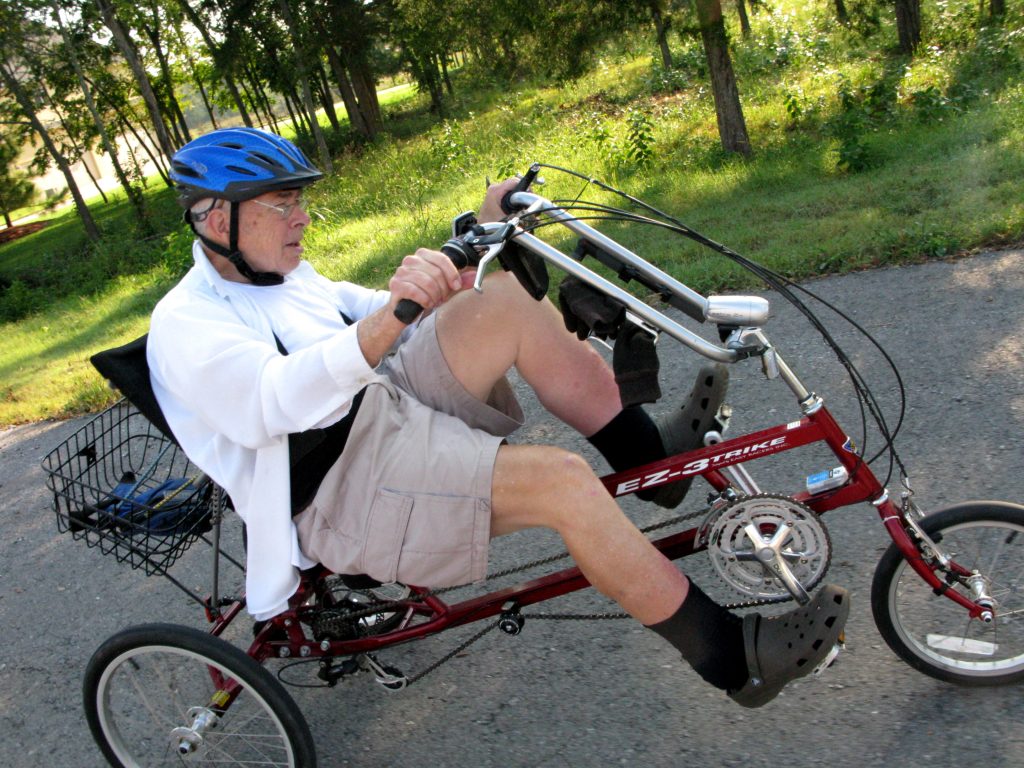
3. What Are the Symptoms of Parkinson’s Disease?
Symptoms of PD can vary but typically include:
- Tremors, often starting in the hands or fingers
- Slowed movement (bradykinesia)
- Muscle stiffness
- Impaired balance and coordination
- Changes in speech and handwriting
- Non-motor symptoms like depression, sleep disorders, and cognitive impairment
4. What Treatments Are Available for Parkinson’s Disease?
Although there is no cure for PD, treatments focus on managing symptoms and improving quality of life. Common treatments include:
- Medications:
- Levodopa (L-DOPA) to replenish dopamine levels.
- Dopamine agonists and MAO-B inhibitors to enhance dopamine effects.
- Physical Therapy: To improve flexibility, balance, and mobility.
- Occupational Therapy: Helps adapt to daily tasks and maintain independence.
- Speech Therapy: Assists with communication and swallowing difficulties.
- Surgical Options:
- Deep Brain Stimulation (DBS) for advanced PD to regulate brain activity.
5. Is There a Cure for Parkinson’s Disease?
Currently, there is no cure for PD. However, ongoing research into gene therapy, stem cell therapy, and neuroprotective treatments holds promise for future breakthroughs.
6. Why Spending Time Outdoors Is Vital for People with Parkinson’s Disease
Connecting with nature offers significant physical and emotional benefits for individuals living with PD:
- Improves Motor Function: Gentle outdoor activities, like walking or stretching, can help maintain muscle strength and balance.
- Reduces Stress: Exposure to natural environments lowers cortisol levels and promotes relaxation.
- Boosts Mood: Sunlight triggers serotonin production, reducing anxiety and depression.
- Enhances Mobility: Outdoor settings encourage movement, helping counteract stiffness and bradykinesia.
- Fosters Social Interaction: Spending time outdoors with family or friends combats isolation and promotes community engagement.
7. How an All-Terrain Wheelchair Can Help
Mobility challenges are common for people with PD, especially in advanced stages. An all-terrain wheelchair provides a practical solution for enjoying the outdoors:
- Navigates Uneven Terrain: These wheelchairs are designed to handle grass, gravel, dirt trails, and other challenging surfaces.
- Increases Stability: Reduces the risk of falls, offering a safe way to explore nature.
- Comfortable Design: Ergonomic seating and shock-absorbing features ensure comfort during extended outings.
- Promotes Independence: Users can confidently explore outdoor spaces without heavy reliance on caregivers.
- Encourages Inclusion: Makes it easier to participate in family outings, hikes, or other outdoor activities.
What is the Extreme Motus All-Terrain Wheelchair?
The Extreme Motus All-Terrain Wheelchair is a transformative mobility aid for individuals with Parkinson’s Disease, a progressive neurological condition that affects movement, coordination, and balance. By providing stability, comfort, and accessibility, this wheelchair empowers people with Parkinson’s to safely explore outdoor environments, maintain independence, and enhance their overall quality of life.
How the Extreme Motus Wheelchair Benefits People with Parkinson’s Disease
1. Ensures Stability and Safety
- Shock-Absorbing Suspension: Reduces jolts and vibrations on uneven terrain, offering a smooth ride for individuals with tremors, rigidity, or sensitivity.
- Stable Design: Provides a secure platform to prevent falls or injuries, which are common for those with balance and coordination challenges.
- Enhanced Safety: Helps manage freezing episodes or sudden loss of control by offering a reliable alternative to walking.
2. Reduces Physical Strain
- Energy Conservation: Parkinson’s often leads to fatigue, and the wheelchair minimizes physical effort, allowing users to conserve energy for other activities.
- Ergonomic Support: Offers proper posture support, reducing strain on the back, neck, and limbs, ensuring all-day comfort.
3. Expands Outdoor Accessibility
- All-Terrain Capability: Navigates diverse surfaces such as dirt trails, gravel, sand, and grass, making parks, beaches, and nature trails accessible.
- Durable Frame: Built to withstand rugged environments while maintaining user comfort and safety.
4. Promotes Mental and Physical Well-Being
- Encourages Time Outdoors: Spending time in nature reduces stress, anxiety, and depression, fostering relaxation and mental clarity—essential for managing the emotional aspects of Parkinson’s.
- Boosts Cognitive Stimulation: Outdoor environments provide sensory and cognitive engagement, helping improve focus and mental agility.
- Provides Emotional Renewal: Time in natural settings helps users reconnect with themselves and their surroundings, promoting emotional resilience.
5. Fosters Social Inclusion
- Facilitates Group Activities: The wheelchair enables individuals to participate in family outings, social events, and community activities, enhancing connection and reducing feelings of isolation.
- Strengthens Relationships: Shared outdoor experiences foster emotional bonds and create meaningful memories with loved ones.
6. Promotes Independence
- User-Friendly Design: Easy to maneuver, the wheelchair empowers users to explore outdoor spaces independently or with minimal assistance.
- Builds Confidence: Overcomes mobility barriers, allowing users to embrace new environments and activities with autonomy and assurance.
Why the Extreme Motus Wheelchair Is Ideal for Parkinson’s Disease
The Extreme Motus wheelchair is designed to address the unique challenges faced by individuals with Parkinson’s Disease. Its combination of stability, comfort, and adaptability ensures users can enjoy outdoor exploration while managing their symptoms and preserving energy.
Rediscover Freedom with Extreme Motus
Living with Parkinson’s Disease doesn’t have to limit your outdoor experiences. The Extreme Motus all-terrain wheelchair provides the tools to navigate the outdoors safely, connect with loved ones, and embrace a more active and fulfilling lifestyle.
Ready to explore the outdoors? Discover how the Extreme Motus wheelchair can help you or a loved one reclaim independence and live life without limits.
Conclusion: Embrace the Outdoors with Confidence
Parkinson’s Disease may pose challenges, but it doesn’t have to limit the joy of experiencing nature. Spending time outdoors provides physical and mental benefits that can greatly improve quality of life. With the help of an all-terrain wheelchair, individuals with PD can reclaim their independence and reconnect with the world around them.
Ready to rediscover the great outdoors? Explore our range of all-terrain wheelchairs designed to empower individuals with Parkinson’s Disease and other mobility challenges today!
Every year, more families discover the freedom these chairs create—this Black Friday, demand is already building fast. By joining the early-access list, you secure your chance to order before the sale goes public on November 28, 2025.
Since 2019, Sam and Ryan have been demonstrating that nature is wheelchair accessible with the Extreme Motus All Terrain Wheelchair. From National Parks to Skateparks, their adventures prove that a manual off-road wheelchair can offer laughter and joy while navigating diverse terrains.
Join us as we continue to share these inspiring journeys.
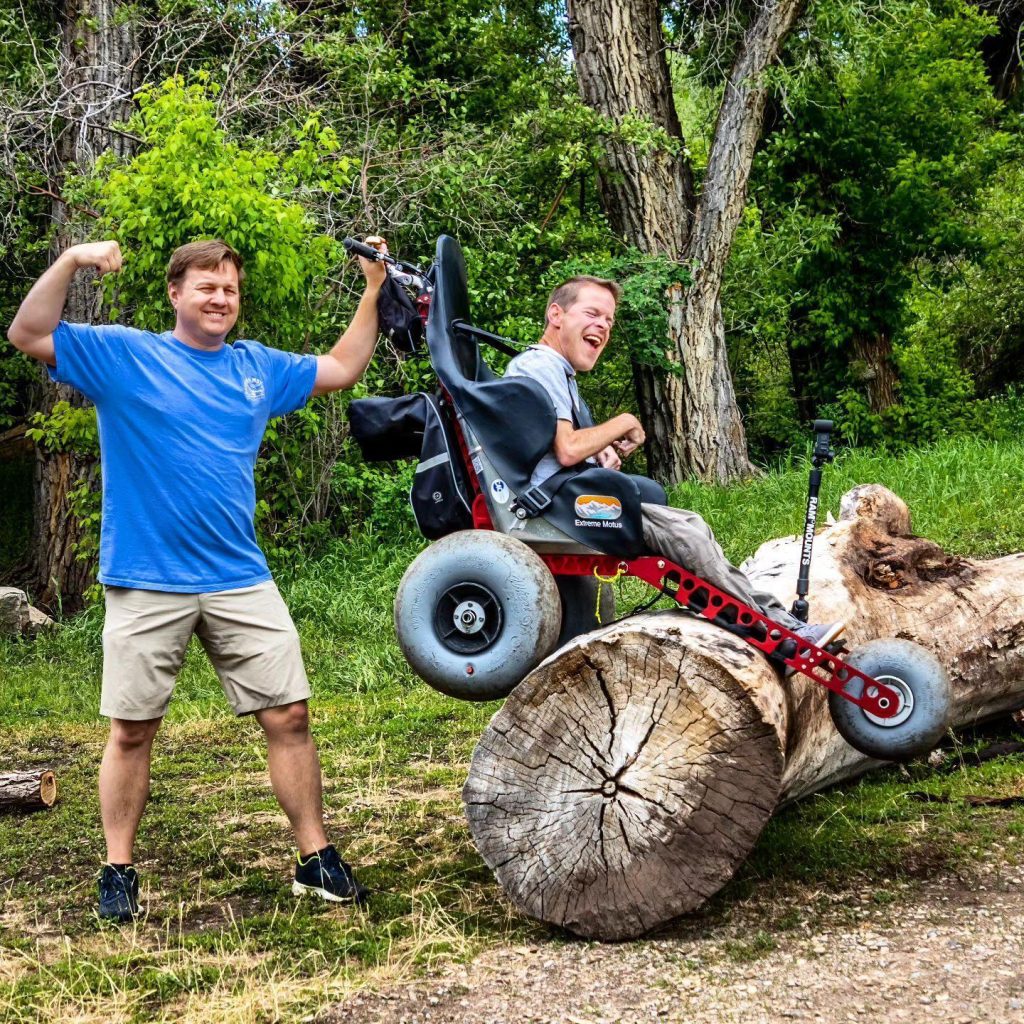
Light, comfortable, and compact, the Extreme Motus glides over sand, rocks, grass, gravel, and even floats in water.
It’s more than a outdoor wheelchair; it’s your ticket to freedom. Embrace the outdoors with confidence, knowing our off-road wheelchair is engineered for durability and ease of use.
Be the first to hear about new gear, upcoming adventures, and exclusive offers. As a welcome gift, enjoy $10 off your first Motus T-Shirt when you subscribe.
By subscribing you agree to receive marketing communications from Extreme Motus, including product updates, promotions, and special offers. I understand I can unsubscribe at any time.

